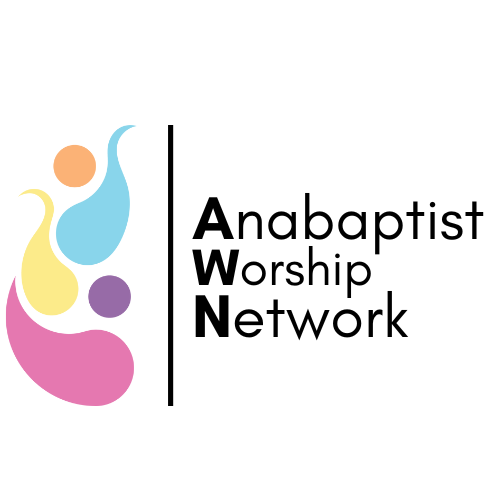On “Praisercise,” Breath, and the Holy Spirit
by Hannah Snavely
“Jesus said, ‘peace be with you! As the Father has sent me, I am sending you.’ And with that he breathed on them and said, ‘receive the Holy Spirit.’” - John 20:21-2
Sometimes worship is exhausting.
At least, that’s what the other musicians on the worship team at Crest Community Church, my small Brethren in Christ congregation in Southern California, joke about almost weekly. Our worship team, like our church, is composed of a diverse group of people. Some were raised in Anabaptist traditions and, moving west to California as adults, sought to continue these traditions. Many congregants, however, don’t even know what the term “Anabaptist” means, drawn in instead by the kids’ loud voices during worship, the overt friendliness of other attendees, or our pastor’s surprising combination of humility and sarcasm. As such, we tend towards a wide range of worship music that draws from our varied backgrounds and cultures.
We call our most animated worship sets “praisercise”: as we praise, we’re also working out. Here’s a couple of our favorite praisercises (feel free to try them out at your next service):
Percrossfit: playing tambourine and eggs while simultaneously singing to build lung capacity.
Sanctuary sprints: dashing to the front because you realized the whole worship team was waiting for you to start the service, and you’re already beginning 15 minutes late.
CIIT (Cross-instrumental interval training): switching instruments really fast in a short amount of time between songs. Extra points if you’re squatting to pick up your accordion.
Powersinging: accidentally picking all songs that are vocally exhausting for one person, rather than choosing songs for different folks to lead (we most recently powersang on Easter morning).
Circuit training jamming: the most dangerous of all, when the band gets stuck in a never-ending four-chord loop, repeating bridges and choruses on end…
All joking aside, we exert a lot of energy in worship, and breath is one way our worship team builds synchronicity and emotion into our songs. My friend Arie and I have sung together over the past six years at Crest Community Church, and we’ve learned to follow each others’ breaths almost intuitively. Recently in pre-service rehearsal, we worked through the breaths of a new (to us) song, Vertical Worship’s “Spirit of the Living God.” We used the air of our exhales to form our phrases together, dynamics rising and falling to meet the lyrical meaning. We grew together, voices rising higher and stronger, attuned to one another, and to Spirit. Our inhales filled the silence, inviting life into our lungs so that we could continue to praise.
In this time leading up to Pentecost, I’ve been increasingly reflecting on how, through our breath, we both spiritedly move forward worship and usher in the Holy Spirit. I think of her as Ruach—wind, breath, filling my chest and body with love. I’ve found particular meaning in breath prayers:
Inhale—Fill me, Holy Spirit
Exhale—with your love.
Inhale—Yah
Exhale—weh
(this one I do at home in my personal practice)
Inhale—May the peace of God
Exhale—dwell in our hearts.
While growing up, we always seemed to talk about the Holy Spirit as fire and tongues, an entity that was public, loud, and flashy. But John tells us that Spirit also comes in quieter, more intimate ways. Jesus breathed on his disciples to give them the Holy Spirit. Behind locked doors, Jesus exhaled to offer us peace. Ruach, peace, love, is in the breath.
So, when we’re exhausted after an hour of praisercise—or when we’re simply tired from the emotional demands of worship leading and everyday life—let’s remember the Spirit of the living God, who fills and sustains us.
Hannah Snavely is a PhD candidate in ethnomusicology at the University of California Riverside. An active member of Crest Community Church (BIC), in Riverside, CA, she loves designing liturgical spaces to gather people and usher in the Spirit. Website: hannahsnavely.com

